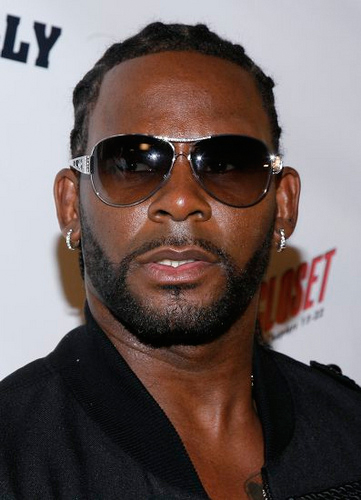
After suffering a string of setbacks in 2018, the #MeToo movement is back in the spotlight where it started—with women of color, thanks to an explosive new docuseries detailing shocking allegations of abuse by singer R. Kelly.
The series, Surviving R. Kelly, centers around the infamous “pee tape,” in which R&B megastar R. Kelly allegedly urinates into the mouth of a 14-year-old girl, and the subsequent child pornography trial where he was found not guilty on all charges.
Spanning 6 hours, the series depicts a serial sexual predator who used fame and wealth to gain virtually unfettered access to his preferred victims: black women overwhelmed by his genius, black girls too young and inexperienced to protect themselves.
R. Kelly is a monster. But we’re all to blame.
Nobody Cares About Black Girls
You don’t have to be a college media studies major or cultural critic to understand the first rule of journalism: If it bleeds, it leads.
Violence sells. Crime generates clicks, so reporters keep writing.
The caveat is unwritten, but understood by every journalist in every newsroom: Only if you’re white, preferably middle or upper middle class. Then you’re newsworthy.
Crimes against black girls became newsworthy when the alleged perpetrator was an R&B star. But nobody cared about the victims because the hits kept coming:
- Kelly married then 15-year-old Aaliyah in an illegal ceremony in 1994. Two years later, “I Believe I Can Fly” peaked at #1.
- In Dec. 2000, the Chicago Sun-Times became the first outlet to report on a series of lawsuits alleging sex between R. Kelly and underage girls, who were compelled to stay silent by five- and six-figure settlements. Six months later, R. Kelly’s “Fiesta,” featuring Jay-Z, peaked at #6.
- In June 2002, Kelly was charged with 21 counts of child pornography, after a video sold on the streets of Chicago allegedly featured the singer urinating on a 14-year-old girl. Six months later, Kelly performed at the opening ceremony of the Winter Olympics.
The full timeline is illuminating, and deeply disturbing. Allegations of sexual abuse swirled around Kelly for more than 20 years without appearing to damage his reputation, except among the black girls and women he abused. Find it here.
Age Ain’t Nothing But a Number
Behind every lurid headline are real people and lives ruined.
In 1994, R. Kelly protégé Aaliyah released her first album, “Age Ain’t Nothing But a Number,” whose title track is about a young girl trying to convince an older man to have sex with her.
The song was penned by Kelly, who literally groomed Aaliyah for success, inventing her look, style, and stage presence with the help of other young girls he abused.
It wasn’t unusual behavior for the star. Long after he left high school, Kelly was known for hanging around the local high school and picking up underage girls.
Later, surrounded by his entourage, he scoured malls across the country for new victims. Overwhelmed by his success, some hungry for their own, the girls couldn’t say no.
How do you say “no” to R. Kelly?
Some left home and never returned. Beaten, starved, they did as they were told. They called him “Daddy” and performed degrading sexual acts on camera.
Like the girl on the pee tape.
No one cared the alleged victim was only 14-years-old, because when you’re a young black girl, age ain’t nothing but a number.
Adultification of Black Girls
Adults view black girls as more mature than their white peers, especially black girls ages 5-14, according to a report by the Georgetown Law Center on Poverty and Inequality.
Black girls are perceived as being more independent and sexually mature than white girls of the same age, and less in need of nurturing, comfort, support, and protection, according to the report.
Maybe that’s why we excused it when Kelly married Aaliyah well before her 18th birthday.
After repeatedly denying a sexual relationship between him and the young singer, 27-year-old Kelly married Aaliyah in an illegal ceremony, with the help of forged papers obtained by his tour manager and personal assistant Demetrius Smith.
Like black boys, who are perceived as less innocent than white boys of the same age, black girls are subject to adultification. Society treats black girls as fully developed adults, according Dr. Monique W. Morris, an author, artists, and international speaker.
Maybe that’s why parents were outraged when 16-year-old Britney Spears crooned, “(Hit Me) Baby One More Time,” but “Age Ain’t Nothing But a Number” was the perfect song.
During his interview, music journalist Nelson George almost gleefully describes the nascent sexuality of Aaliyah, explaining that her barely pubescent body made the track work.
“Age ain’t nothing but a number is a thing I’ve heard in the black community since I was a young boy,” he says, with a knowing smile.
If you were aware of his behavior and didn’t say anything, you’re just as sick as R. Kelly, said Jovante Cunningham, a former backup singer for Kelly, in Surviving R. Kelly.
We all knew. What does that say about us?
